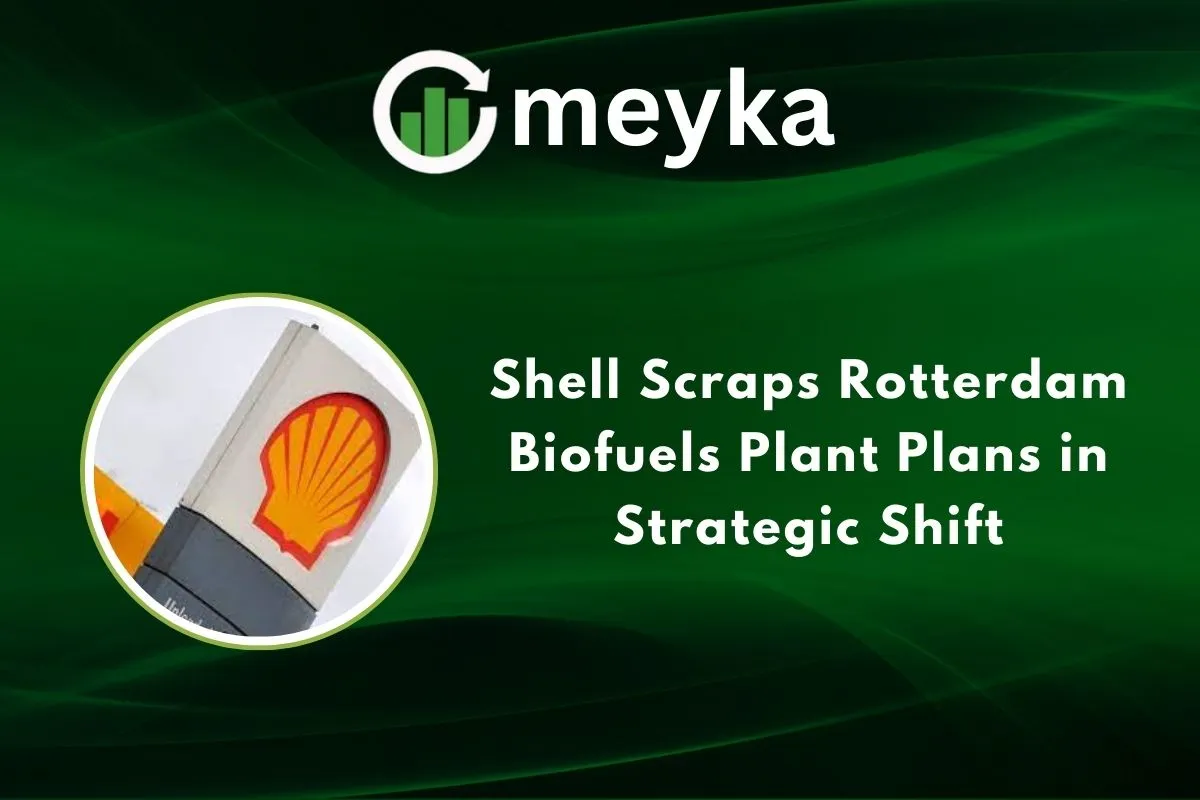Shell Scraps Rotterdam Biofuels Plant Plans in Strategic Shift
Shell has recently decided to halt the construction of its biofuels plant at the Shell Energy and Chemicals Park in Rotterdam, Netherlands. This facility was initially planned to produce 820,000 metric tons of biofuels annually, including sustainable aviation fuel (SAF) and renewable diesel, sourced from waste materials such as used cooking oil and animal fats. The decision follows a comprehensive commercial and technical evaluation, which concluded that the project would not be competitive enough to meet the demand for affordable, low-carbon fuels.
Construction of the plant began in 2022 but was paused in July 2024 due to technical challenges and unfavorable market conditions. Shell’s President for Downstream, Renewables, and Energy Solutions, Machteld de Haan, emphasized that this was a difficult yet necessary decision to ensure that capital is directed toward projects that deliver both customer needs and shareholder value.
This move reflects a broader trend in the energy sector, where major oil companies are reassessing their investments in renewable energy projects amid fluctuating market dynamics and cost considerations. While Shell remains committed to low-carbon fuels and continues to be a significant player in the biofuels market, this development marks a shift in its approach to energy transition initiatives.
Background of the Rotterdam biofuels project, the reasons behind Shell’s decision to cancel the plant, the implications for the biofuels industry, and the broader impact on the energy transition landscape.
Background of the Rotterdam Biofuels Project
Announced in September 2021, the Rotterdam biofuels plant was envisioned as one of Europe’s largest converters of waste into sustainable fuels. The facility was designed to produce 820,000 metric tons of biofuels annually, including SAF and renewable diesel, contributing to the aviation industry’s efforts to reduce emissions. Construction commenced in 2022, with production initially slated for 2024 but delayed to 2025 due to technical challenges. However, Shell ultimately deemed the project insufficiently competitive to meet market demands for low-cost, low-carbon fuels.
Reasons Behind Shell’s Decision
Shell’s decision to cancel the Rotterdam biofuels plant was driven by several factors:
- Market Conditions: The biofuels market faced a years-long slump, with weak demand and oversupply leading to declining prices. This made it challenging for new projects to be competitive.
- Cost Considerations: High completion costs and regulatory delays added to the financial challenges of the project.
- Strategic Shift: Under CEO Wael Sawan, Shell has scaled back clean energy projects to prioritize profitable oil and gas sectors, leading to the abandonment of the Rotterdam facility.
Machteld de Haan, Shell’s President for Downstream, Renewables, and Energy Solutions, emphasized that the decision was a difficult but necessary one to ensure capital is directed toward projects that deliver both customer needs and shareholder value.
Industry and Market Implications
Shell’s decision to cancel the Rotterdam biofuels plant could have major effects on the biofuels sector:
- Market Impact: The decision reflects broader trends in the oil and gas sector, with companies reassessing investments in renewable energy projects amid fluctuating market dynamics and cost considerations.
- Investor Reactions: Shell’s shares experienced a slight decline following the announcement, reflecting investor concerns over the company’s renewable energy strategy.
- Industry Trends: Other major oil companies, such as BP, have also scaled back renewable fuel projects, indicating a shift towards more profitable ventures.
Environmental and Sustainability Considerations
The cancellation of the Rotterdam biofuels plant raises questions about the future of biofuels in the energy transition:
- EU Renewable Energy Targets: The European Union has set ambitious renewable energy targets, and the cancellation of significant projects like Rotterdam may impact the achievement of these goals.
- Biofuels’ Role in Decarbonization: While biofuels are considered a key component in reducing emissions, their feasibility as a widespread solution is debated, especially in light of alternative technologies.
- Shell’s Sustainability Roadmap: Despite the cancellation, Shell remains committed to low-carbon fuels and continues to be a significant player in the biofuels market.
Broader Implications for Energy Transition
Shell’s move highlights a wider pattern emerging across the energy industry:
- Shift Towards Fossil Fuels: Major oil companies are reassessing their investments in renewable energy projects, focusing more on fossil fuel production and scaling down renewable energy initiatives.
- Investment Prioritization: Companies are directing capital towards projects that balance customer needs and shareholder value, often favoring more profitable ventures over renewable energy initiatives.
- Policy and Market Dynamics: The energy transition is influenced by regulatory policies, market conditions, and technological advancements, all of which play a role in shaping investment decisions.
Conclusion
Shell’s decision to cancel the Rotterdam biofuels plant underscores the challenges and complexities of the energy transition. While the company remains committed to low-carbon fuels, the move reflects a strategic shift towards more profitable ventures. As the energy sector continues to evolve, the balance between sustainability and profitability will remain a critical consideration for companies and policymakers alike.
FAQS:
Yes, Shell paused construction of its biofuels plant in Rotterdam in July 2024 due to weak market conditions.
Shell had plans to construct a biofuels plant in Rotterdam, designed to produce 820,000 metric tons each year.
Disclaimer:
This content is for informational purposes only and is not financial advice. Always conduct your research.






